In 2020 — the most recent year for which official numbers are available —19 percent of permanent residents aged 15 or over had dual nationality, according to a study by the Federal Statistical Office (FSO) released on Thursday.
When foreigners gain citizenship of their country of residence while still maintaining the nationality of their place of origin, they become known as ‘dual nationals’.
What does the study show?
People from Italy account for the largest proportion — 23 percent — of dual nationals, followed by those from France (12 percent) and Germany (8 percent).
Less than 5 percent of UK citizens also have a Swiss passport.
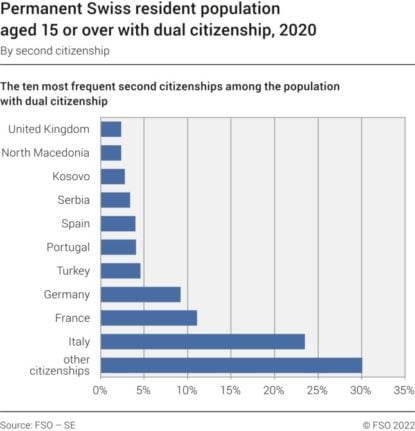
In terms of residence, the majority of double nationals (45 percent) live in Geneva, Vaud (31 percent), Ticino (38 percent), and Basel-City (25 percent).
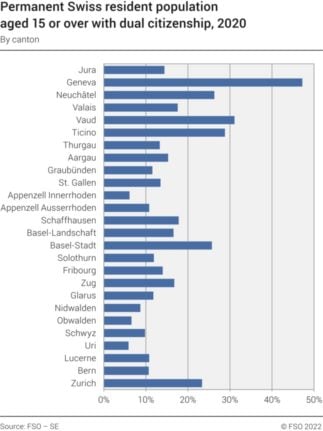
Within this population, 65 percent obtained Swiss nationality by naturalisation, while 35 percent obtained it at birth.
Unlike many other countries like the United States or Canada, being born in Switzerland doesn’t automatically mean the person is Swiss; if their parents were born abroad and still hold foreign passports, a person will not obtain Swiss citizenship by birth.
However, this could change, as the Social Democratic party wants the government to loosen naturalisation and citizenship rules to allow “citizenship by birth”.
READ MORE: How Switzerland’s Social Democrats want to introduce ‘citizenship by birth’
This article provides more general information about dual nationals in Switzerland:

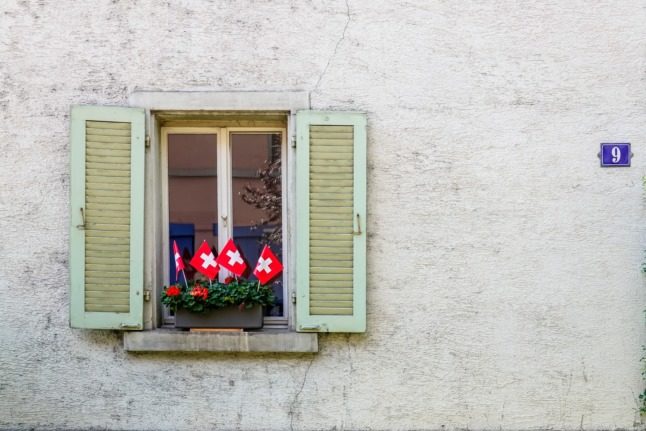

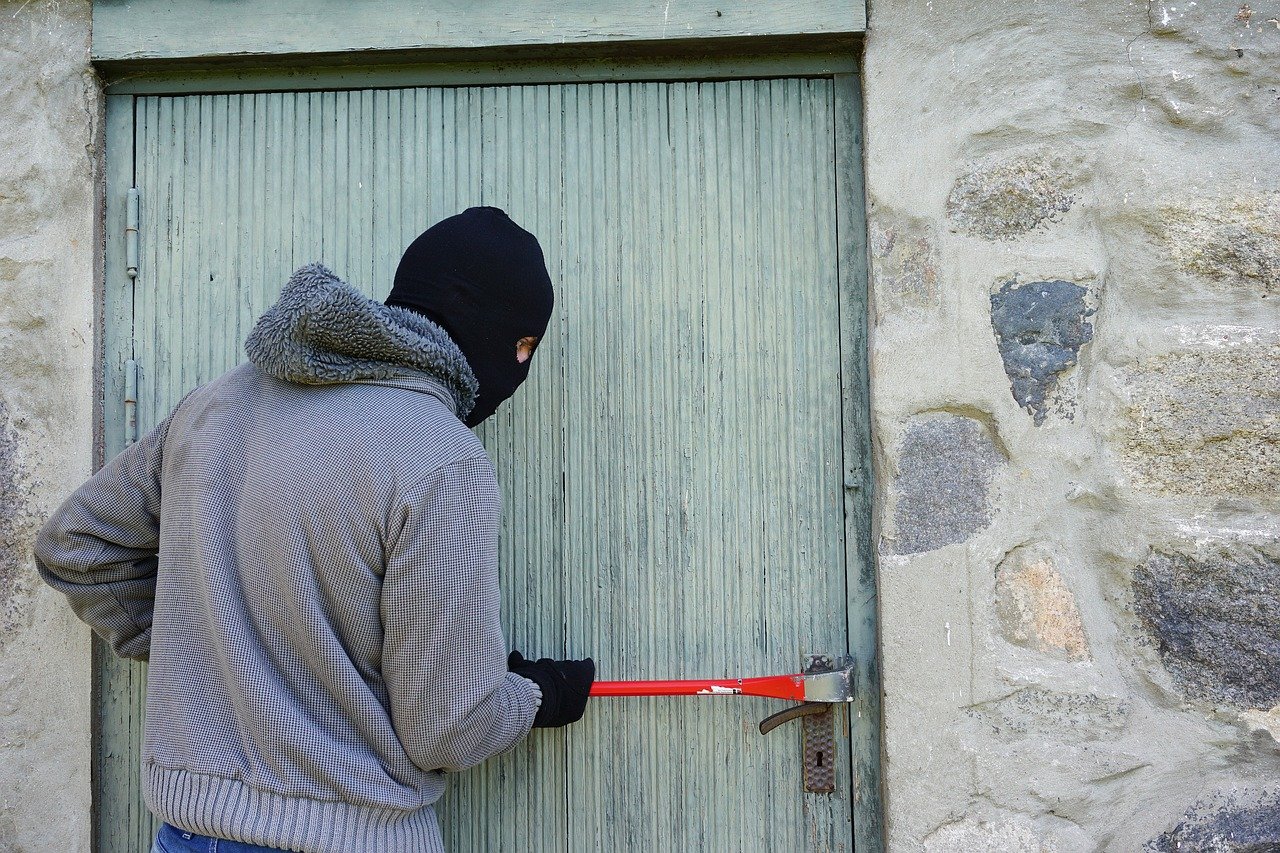
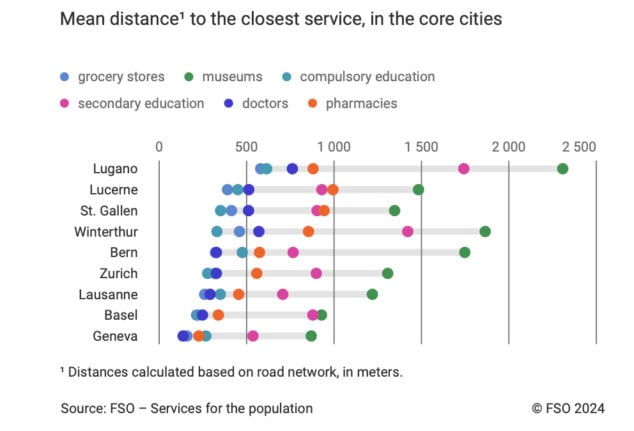
 Please whitelist us to continue reading.
Please whitelist us to continue reading.
Member comments